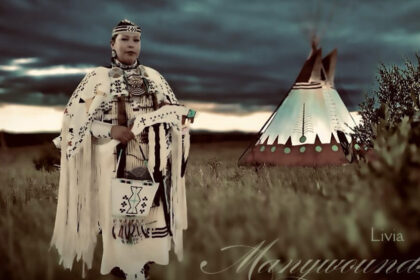When Sandra Indian sees someone hesitate to speak Anishinaabemowin, she understands. The teacher and guidance counsellor at Onigaming First Nation is a fluent listener of Anishinaabemowin — but for years, she couldn’t speak her language out loud. “Even to this day, I can understand people conversing. I can translate for them,” she said. “But when it comes to me speaking it, something happens to my brain. I can hear it and understand it, and I know what I want to say. But when it comes out… rolls out to my tongue and to my mouth, I can’t do it.” She later learned there was a name for what she was experiencing. People like Indian are sometimes called silent speakers. They can understand the language fluently, but there is a trauma reaction that blocks their ability to speak. Indian is taking cognitive behaviour therapy with other silent speakers to help her unlock her ability to speak. She says it is working. But, the thing is, Indian was once a fluent speaker. She grew up in a household where Anishinaabemowin was strong. “Both my grandmas, they didn’t know English, just very few words,” she said, “and same with my grandfathers. I had rarely heard English from them.” Her parents, both survivors of residential school, kept the language alive at home for their eight children. “Growing up in that home they did the best that they could to raise us. We heard the language all the time, and so I spoke the language. I was very fluent,” recalls Indian. Sandra Indian is creating safe spaces to help herself and others relearn their language. Her mother worked at the local day school as a janitor and had close ties to the teachers. One day, Sandra overheard a teacher talking to her mother. “He told my mom, ‘Sandra is a very bright girl. She has a bright future ahead of her. The only thing that’s going to hold her back is speaking in Anishinaabemowin. You gotta stop speaking your language to her.’” Trusting that advice, her parents listened. “They stopped speaking to us and encouraged us to speak more English,” said Indian. It had a strange impact on the family because the older children remained fluent. Indian, as the middle child, kept some working knowledge of the language. But the younger siblings lost their ability to speak and can’t understand many words of the language today. Later in life, Indian tried to reclaim what she’d lost. “I was so determined throughout my life to get back that language,” she said. “I would volunteer as a translator. That’s how I learned a little bit.” Unfortunately, as she worked to relearn the language, she sometimes felt judged by others in the community or embarrassed. People would point out that she wasn’t using the right word, or they would tell others not to listen to her because she wasn’t fluent and made mistakes. Fortunately, the Elders in the community encouraged her. “The Elders said to me, they said, ‘everybody’s a speaker. If you could speak one word, then you’re a speaker.’” This simple message helped Indian shift her perspective. Instead of feeling like she didn’t belong in language spaces, it reminded her that every effort counts. Today, she practices a philosophy that every word learned is a step toward reclaiming identity and that became the foundation for a personal project, “The Red Teapot Sessions” or “Nitii Minikwemi” in Anishinaabemowin. “It’s like we’re drinking tea,” she said. “I have a teacup set, and then I put my tablecloth there, and then we have tea, and that creates a comfort zone. “And that’s what I wanted to do, to create a safe space for them to go ahead and speak without anybody judging them or feeling uncomfortable.” Indian launched the red teapot youtube site to share language and stories from Onigaming. Indian films the conversations and posts them online. At first, on Facebook, where she got a very positive response. People told her she needed to also put the videos up on YouTube and she did. She hopes they will help people build confidence in relearning their language. The videos tell stories, memories and teachings, sometimes with just words or two of language, sometimes completely in Anishinaabemowin. In one short video, an Elder picks up a teacup decorated with dragonflies and teaches the Anishinaabemowin word for dragonfly: Oboodashkwaanishiinh. She then tells a story in English about a grub who climbed from his home, up to the top of a lily pad and found himself transformed into a dragonfly. He soared above the water, full of joy, but when tried to tell his friends what he had become, they no longer recognized him. Then the lesson. “Our loved ones leave us, but they’re never truly gone. They are still among us, but they have been transformed. We don’t recognize them, but it could be a little dragonfly come to see you, or a hummingbird, or a robin,” the Elder says. In another, longer video, for those who are more fluent, Eldon Copenace of Naotkamegwanning who teaches Anishinaabemowin to the children of his community, shares a story completely in language. Sandra’s teacup and camera continue to travel across the community, and into others, creating space for all kinds of speakers—beginners, fluent Elders, and silent speakers like herself. “Our language needs to grow. It changes and it’s alive,” she said. Continue Reading
A red teapot and a camera is turning silence into Anishinaabemowin language in Onigaming

Leave a Comment










